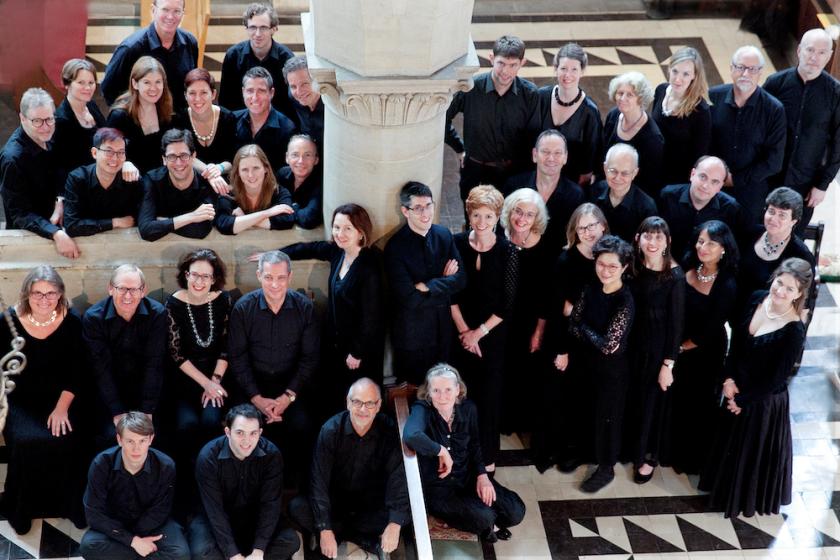Since 2005 Londinium has carved out a niche in the London choral scene as a purveyor of creative programming, exploring often neglected musical byways or making surprising connections and juxtapositions. Last night the idea was a musical Grand Tour of Europe, as taken by aristocratic young men in the 18th century, and a well-crafted and very satisfying concert resulted.
As conductor Andrew Griffiths explained, since there is a dearth of a cappella choral music from the relevant period, they had permitted their imaginary traveller a Tardis, so that although the geographical stop-offs were authentic, the music could come from the most interesting historical time in that location. So we had Palestrina in Rome, Wagner in Venice and Debussy in Paris. And it really worked.
A programme of short items – there were 15 here – can risk being bitty, but instead what shone through was the intelligence of Griffiths’ sequencing and the versatility of the choir in constantly switching style and language. Griffiths himself bound things together with spoken links in which he showed a donnish enthusiasm for his chosen music that was engaging and informative.
Although Londinium are not a professional choir, and lack perhaps that sheen of sound and pinpoint accuracy professionals produce, they are extremely good amateurs and often the more ambitious pieces drew out the best performances. They have an excellent blend through the 40 voices, but there were also some notable (if uncredited) solos, and the stamina involved was impressive as none of the music was easy. Griffiths’ (pictured below by Marco Borggreve) conducting is vigorous and authoritative and found endless detail in all the pieces.
 There were some particular highlights for me – although one of the pleasures of this kind of collage programme is there is bound to be something for everyone. I loved the Debussy Trois Chanson de Charles d-Orleans, with modal harmony occasionally giving way to drooping chromatic harmony. There was an energy to the second song which was characteristic of the choir’s performances throughout, and especially in Croce’s vibrant antiphonal Percussit Saul mille that opened the second half.
There were some particular highlights for me – although one of the pleasures of this kind of collage programme is there is bound to be something for everyone. I loved the Debussy Trois Chanson de Charles d-Orleans, with modal harmony occasionally giving way to drooping chromatic harmony. There was an energy to the second song which was characteristic of the choir’s performances throughout, and especially in Croce’s vibrant antiphonal Percussit Saul mille that opened the second half.
There were contemporary pieces in the mix: the choir revelled in the strange harmony and varied textures of Judith Bingham’s Gleams of a Remoter World, and the UK premiere of American composer Matthew Recio’s How to Survive Vesuvius suggested a name to look out for. I also enjoyed Eric Whitacre’s Leonardo Dreams of his Flying Machine, which is a resourceful and striking piece in which Whitacre combines the expansive open chords of the Renaissance with his characteristic clusters to good effect, and the choir committed to it fully.
Of the more unlikely composers to be encountered in a choral concert Wagner and Mahler were represented by 16-part arrangements of songs by Clytus Gottwald, and it was refreshing to hear these composers’ distinctive styles in choral garb. The Mahler was part of a superb final sequence of pieces: his Ich bin der Welt abhanden gekommen from the Rückert-Lieder was intimate despite the size of the choir, and a touching statement of existential despair. It was followed by Griffiths’ own arrangement of Purcell’s Fairest Isle (as the imaginary traveller returned home), featuring an excellent soprano solo by Clare Loosley, clear and unaffected. And then as a finale the invigorating cold shower of Tippett’s Dance, Clarion Air washed away the accumulated dust of the long journey in a bracing blast.















Add comment